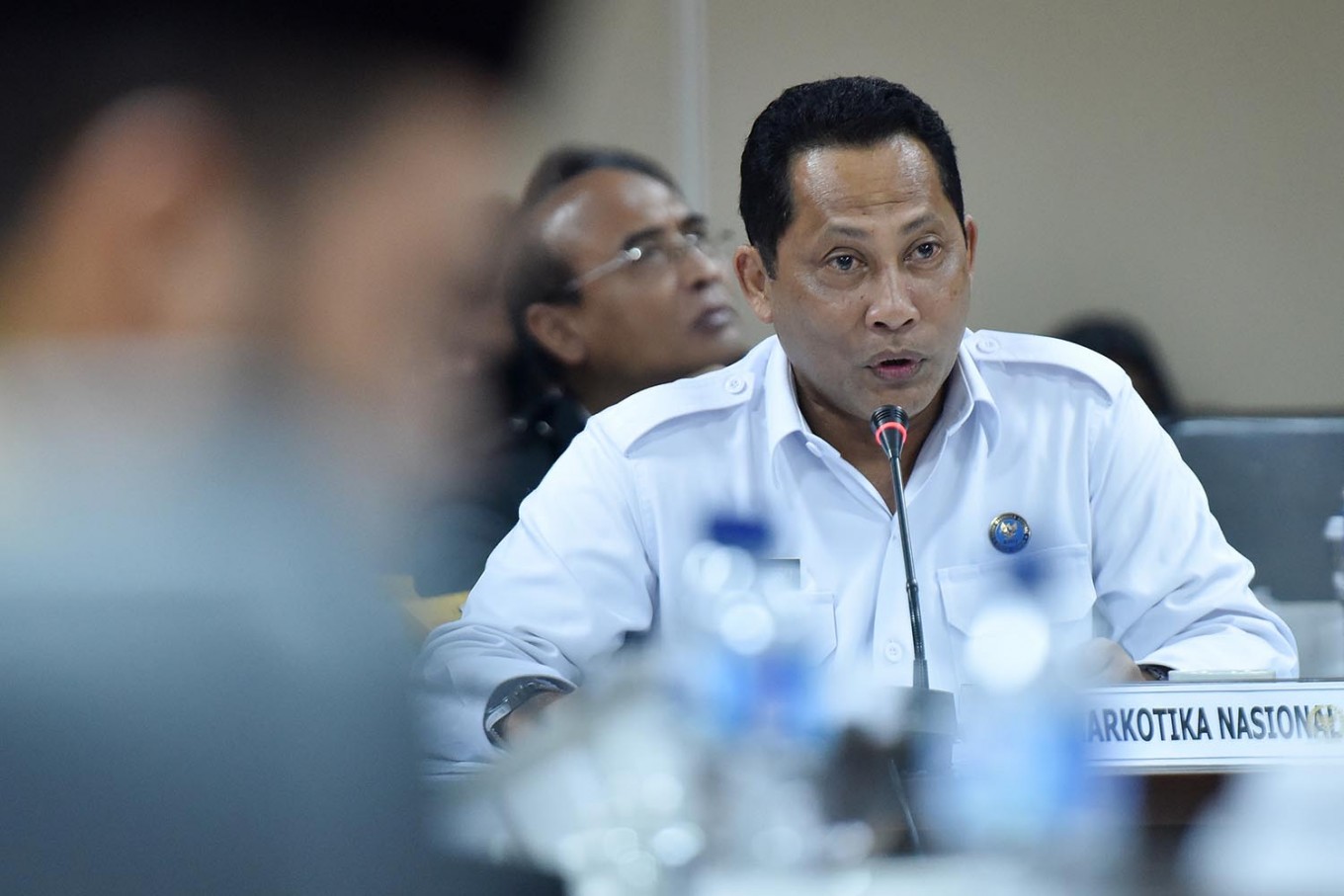Popular Reads
Top Results
Can't find what you're looking for?
View all search resultsPopular Reads
Top Results
Can't find what you're looking for?
View all search resultsLogistics agency introduces barcode system to monitor commodities
Change text size
Gift Premium Articles
to Anyone
I
n a bid to ensure the availability of food stocks ahead of the Ramadhan fasting month starting next week, the government has introduced the use of a barcode system to monitor an online database of commodities. The system was launched on Sunday.
State Logistics Agency (Bulog) president director Budi Waseso said on Tuesday that the system could prevent hoarding. “The use of barcodes is to control the sales of commodities. The system will detect anyone who buys too much [of a certain commodity],” he said.
“The system operates just like in the [modern] retail market.”
There are at least five main commodities under Bulog’s supervision; rice, meat, sugar, fish and soybeans.
Medium-quality rice was the cheapest on the market, Budi said, adding that it could even be lower than the price ceiling decided on by the Trade Ministry last year of Rp 11,000 (78 US cents) per kilogram on average.
“We can change any regulations as long as it is for the benefit of society,” he argued.
Apart from introducing the barcoded 5 and 10 kilogram packages of medium-quality rice, Bulog also introduced smaller packages of 200-gram medium quality rice to be sold at small kiosks, he added.
Meanwhile, to ensure the distribution of rice across the country, Budi said that the agency had teamed up with regional governments, the Indonesian Military (TNI) and the National Police (Polri).
During the holy month, the problem of food scarcity usually emerges because of foul play by suppliers seeking to disrupt distribution to get higher prices. (bbn)










